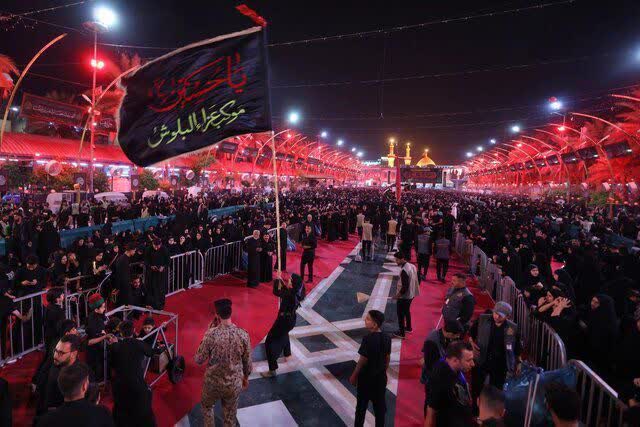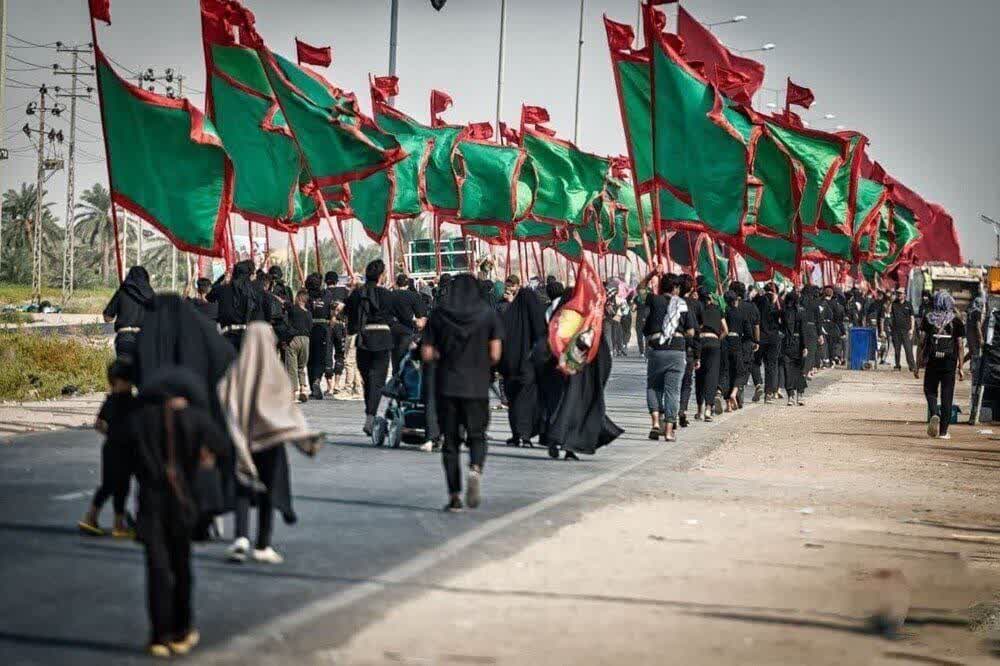The Ultimate Guide to Arbaeen Walk: Answering the Internet's Most Searched Questions
Every year, millions of pilgrims embark on the spiritual journey of Arbaeen Walk, creating the world's largest peaceful gathering. As interest in this profound experience grows globally, numerous questions arise. Let's explore the most searched topics surrounding this remarkable event.
1. Arbaeen Walk: History, Meaning and Astonishing Pilgrim Statistics
The Arbaeen pilgrimage commemorates the 40th day after Imam Hussain's martyrdom, with roots tracing back to the 7th century. What began as a small commemorative visit has transformed into a massive movement, with recent years seeing over 20 million participants from 100+ countries. The walk from Najaf to Karbala spans approximately 80 kilometers, with numbers swelling exponentially each year, making it arguably the largest annual human gathering on Earth.
2. Iraqi Hospitality During Arbaeen: A Miracle of Kindness
The selfless hospitality displayed by Iraqis during Arbaeen has become legendary. Local families and volunteers establish thousands of "mawkibs" (service stations) offering free meals, medical care, foot massages, and even overnight accommodation. This extraordinary generosity continues despite Iraq's economic challenges, with hosts considering it an honor to serve Imam Hussain's guests. Many pilgrims describe this as the most touching aspect of their journey.

3. Arbaeen Pilgrimage 2024: Complete Travel Guide
For those planning to participate in 2024, preparation is key. The main walking routes are well-marked, with security checkpoints and support services. Essential items include comfortable walking shoes, weather-appropriate clothing, and basic medical supplies. While the traditional route takes 3-5 days, various transportation options exist for those unable to walk the entire distance. Registration typically opens months in advance through authorized visa platforms.
4. Why Arbaeen is the World's Largest Religious Gathering
Several factors contribute to Arbaeen's massive scale: its deep spiritual significance in Shia Islam, the emotional connection to Imam Hussain's story, and the inclusive nature that welcomes all regardless of sect or nationality. The walk's logistical organization - with free services reducing participation barriers - combined with Iraq's central location makes it accessible to pilgrims worldwide. The visual spectacle of millions walking together creates a powerful draw that continues to grow annually.
5. Personal Experiences: Walking from Najaf to Karbala
Those who complete the journey often describe it as life-changing. The physical challenge of walking 80km is overshadowed by the spiritual high and sense of community. Pilgrims report extraordinary moments: elderly walkers persevering through pain, strangers becoming family, and nights filled with prayer and remembrance. Many return year after year, claiming no other experience compares to walking those sacred roads.

6. Registration Process and Requirements
International pilgrims typically need a special visa, obtainable through religious organizations or Iraqi consulates. Requirements include passport copies, photos, and sometimes proof of vaccination. Processing times vary, so early application is advised. Many opt for package tours that handle logistics, while experienced pilgrims often organize their own trips. Women traveling without male relatives should check latest regulations.
7. The Mawkib Phenomenon: Free Services Explained
These volunteer-run stations appear every few hundred meters along the route, offering everything from hot meals to medical care. Funded by donations and staffed by locals and international volunteers, they operate on pure goodwill. Some specialize in particular services - like blister treatment or multilingual guidance. The system works so efficiently that pilgrims often joke about gaining weight despite walking 80km!
8. Navigating the Route: Practical Tips
The Najaf-to-Karbala path is well-established, with markers and police presence. Peak times see congestion, so many prefer walking at night when temperatures are cooler. Smart pilgrims pace themselves, taking advantage of rest stations. Local apps now provide real-time route updates, while physical maps remain essential backups. The final approach to Karbala's golden-domed shrines creates an unforgettable emotional crescendo.
9. Non-Muslim Participation in Arbaeen
Contrary to some assumptions, Arbaeen welcomes all. Journalists, researchers, and curious travelers regularly join, often touched by the experience. While respectful conduct is expected (modest dress, avoiding prohibited items), many non-Muslims find themselves deeply moved by the spirituality and hospitality. Some Christian groups even run their own mawkibs in solidarity.
10. The Deeper Meaning of Arbaeen
Beyond commemorating Karbala's martyrs, Arbaeen represents resistance against oppression and the victory of truth over power. The 40-day symbolism connects to spiritual purification periods across traditions. For participants, it's both a personal transformation and collective statement - walking the same sands where history's greatest stand for justice occurred.
This living tradition continues to evolve while maintaining its sacred essence. Whether you seek practical information or deeper understanding, Arbaeen offers answers that can only be fully grasped by taking those first steps toward Karbala. Each pilgrim's journey adds to the rich tapestry of this global phenomenon that transcends borders, languages, and even faiths, united in the pursuit of truth and human dignity.



دیدگاه خود را بنویسید